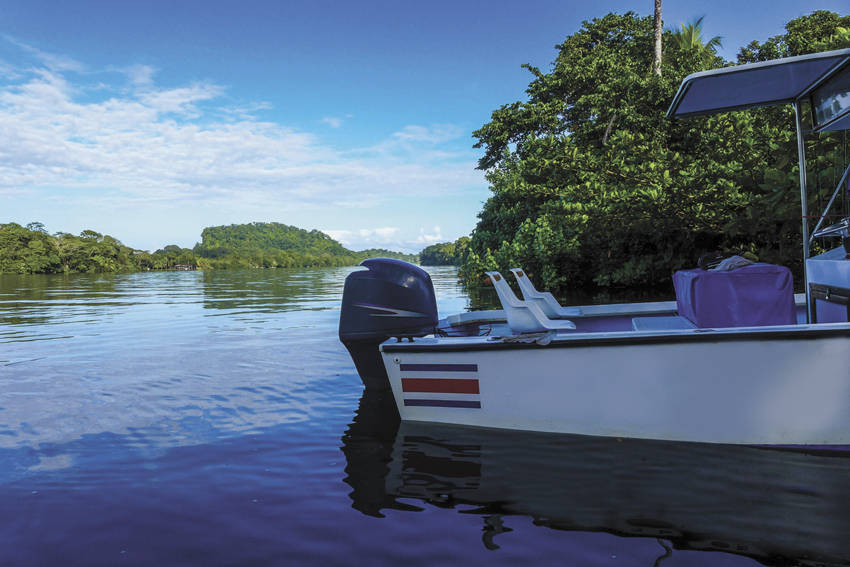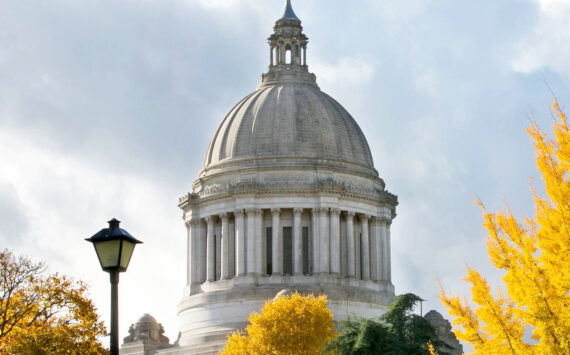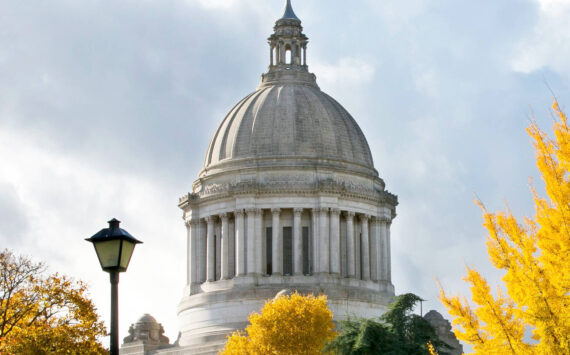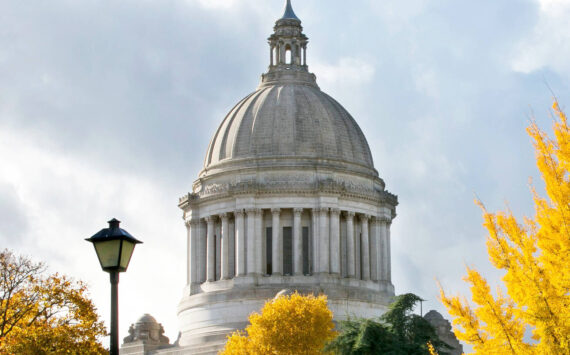OLYMPIA – Now that restrictions on outdoor recreation have eased, spring fishing and boating can finally get underway. Every May, the National Safe Boating Week campaign reminds boaters and paddlers about the importance of safe boating.
National Safe Boating Week is coordinated each year by the National Safe Boating Council and its boating safety partners across the U.S. and Canada. During the 2020 campaign, May 16 through 22, the Washington State Parks Boating Program will step up its emphasis on recreational boating safety on Washington’s waters.
“We find that on-the-water accidents and fatalities increase as the weather warms up and more people get out on the water,” said Rob Sendak, State Parks Boating Program manager.
According to Washington’s recreational boating accident data, in the last five years, trends show most accidents and fatalities happen between May and August, and 75 percent of fatality victims were not wearing a life jacket.
“Boating can be a wonderful way to social distance in the outdoors,” Sendak added. “But we are asking boaters to be safe and consider the first responders who are called out to conduct rescue missions and the potential dangers related to coronavirus exposure.”
The Boating Program recommends the following safety tips:
Get educated
Many recreational boaters in Washington must take an approved boating safety education course and carry a Washington State Boater Education Card. All boaters and paddlers are responsible for knowing the laws and keeping themselves and others safe. The Boating Program recommends boating safety courses even for those boaters who don’t have to carry the card. The courses offer training in safety, emergency procedures and navigational rules. More information about boater education: www.boatered.org.
Conduct a (virtual) vessel safety check
Local marine law enforcement, the U.S. Coast Guard Auxiliary and United States Power Squadrons typically have certified vessel examiners who perform free vessel safety checks. However, during this time of social distancing, an online virtual vessel safety check option is available.
Always wear a life jacket
State law requires all vessels, including canoes, kayaks and stand-up paddleboards to have at least one properly fitted Coast Guard-approved life jacket for each person onboard. All children, age 12 and younger must wear one at all times. The Boating Program encourages all boaters to wear their life jackets every time they go out on the water. Life jackets have evolved to be sophisticated, comfortable and tailored for specific water activities. More about life jackets: www.wearitwashington.org.
Bring communication devices
Boaters should carry two forms of communication that will work when wet, such as a whistle, waterproof cell phone or VHF marine radio. These devices greatly increase the chance of being found in an emergency. Recommended equipment includes flares, a signal mirror and an air horn to aid emergency responders in search efforts. Boaters should also consider carrying a personal locator beacon (PLB), which instantly notifies responders of their location when activated.
Avoid alcohol and drugs
Boat owners and/or operators are responsible for the safety and well-being of everyone on board. Operating a boat while under the influence of alcohol or drugs, including marijuana, is not only unsafe — it’s illegal. The Boating Program recommends designating a sober skipper. Washington state’s Boating Under the Influence (BUI) law applies to all boats including kayaks, canoes, rowboats and inflatable fishing rafts. More about boating sober: www.boatsober.org.
Check and understand the weather Boaters should check the weather frequently before and during their boating excursion, keeping an eye on current conditions and forecasts. Boaters should check warnings, weather conditions, wind and wave forecasts, tides and current conditions. Boaters need to understand how each of these elements affects a person’s ability to control their vessel. Boaters should heed warnings about specific navigational hazards. areas and avoid navigating in those areas. National Weather Service (NOAA Weather Radio) broadcasts can be found on marine band and standalone weather radios.
Protect against cold-water shock
A fall into water under 60 degrees is dangerous, and many of Washington’s waters remain below 60 degrees year-round — including lakes and rivers — even during hot weather. The biggest risk is not hypothermia, it’s cold-water shock, which occurs in the first stage of immersion. Boaters need to take caution and prepare themselves by always wearing a life jacket, especially when operating boats under 21 feet. That includes small fishing boats or non-motorized craft such as kayaks or rowboats, which all have a higher risk of capsizing.
Follow social media
People can learn about and participate in the National Safe Boating Week campaign through social media by using some of the following hashtags: #SafeBoating #BoatPrepared #WearItWA #SafePaddling
About the Washington State Boating Program: The Washington State Parks and Recreation Commission administers the state’s Boating Program, which provides leadership in boating safety and environmental education and outreach. The goal of the program is to reduce accidents and fatalities, increase stewardship of Washington waterways, and keep recreational boating a safe, accessible and enjoyable pastime. For more information on the Boating Program, visit www.parks.wa.gov/boating.
– Washington State Parks





